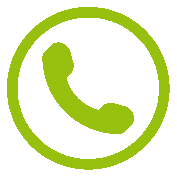1. Visit your specialist
We will conduct an interview in which we need to you tell us your medical history.
We might ask you to arrange for additional tests.
We will inform you of the technique and which type of anesthesia is most suitable to solve your health problem.
If you are a private patient your specialist will prepare your treatment budget.
2. Preoperative Testing
Here we will evaluate your anesthetic risk which usually consists of a blood test, an electrocardiogram, a chest radiograph and a preanesthesic assessment by the anesthesiologist.
3. Signing consents and preoperative instructions
Your specialist will inform you of the risks and the expected results of the procedure you have selected to treat your health problem. You will sign a document that contains all the information concerning your treatment.
Your specialist will give you a document with the instructions that you have to take to prepare in the days before your treatment.
We will also ask you to process some authorizations from your health insurer in case you are insured in a company. You must bring them before your operation.
If you are a private patient you will be asked to make the payment of medical fees, supplying us proof of payment on the day of surgery.
4. On the day of your operation
Your specialist will have previously indicated you on the instruction sheet the date, time and place in which you will have to attend for your operation. Do not forget to read these instructions to avoid confusion.
• General information:
In case of local anesthesia / ambulatory surgery:
- Fasting is not necessary, but you should not make a copious food intake prior to surgery.
- Usual hygiene is needed in the day of your operation (washing the area prevents infection).
- If you take any medication, you can take it until the night before surgery, unless we have notified you to the contrary regarding some medication in particular (especially antiaggregants and anticoagulants).
- Your clothes should be comfortable and you must not bring metallic objects (rings, piercings, earrings, etc) and if you use dental prosthesis or contact lenses remove them before coming.
- Come accompanied with a responsible adult considering that you won’t be able to drive.
In case of local anesthesia / outpatient surgery:
- 4 hours fasting before the intervention.
- Usual hygiene is needed in the day of the intervention (washing the area prevents infection).
- If you take any medication, you can take it until the night before surgery, unless we have notified you to the contrary regarding some medication in particular (especially antiaggregants and anticoagulants).
- Your clothes should be comfortable and you must not bring metallic objects (rings, piercings, earrings, etc) and if you use dental prosthesis or contact lenses remove them before coming
- Come accompanied with a responsible adult considering that you won’t be able to drive.
In case of general anesthesia/ major inpatient surgery:
- 6 hours fasting before the intervention.
- Usual hygiene is needed in the day of the intervention (washing the area prevents infection).
- If you take any medication, you can take it until the night before surgery, unless we have notified you to the contrary regarding some medication in particular (especially antiaggregants and anticoagulants).
- Your clothes should be comfortable and you must not bring metallic objects (rings, piercings, earrings, etc) and if you use dental prosthesis or contact lenses remove them before coming.
- Bring a toiletry bag since you will need it during your inpatient time (pyjamas, toothbrush, etc.)
In each particular case the specialist may have indicated you other complementary instructions in writing.
Do not forget to bring:
- Your insurer authorizations or proof of payment.
- Your usual medication
- Your preoperative test results.
- The medical tests that have been done to identify your illness.
On arriving at the hospital go to the admissions desk, hand over your authorizations or make your downpayment and you will be indicated the preoperative area or the room that belongs to you.
Think that your appointment time is approximate and we cannot assure the exact time of your operation, so PLEASE be patient.
Your family may wait in the room or in the preoperative area until the end of the procedure. The specialist will inform you about the operation results in the following hours. Nurses have detailed instructions to indicate you the postoperative treatment that you will need.
5. On the day of your discharge
Your specialist will give you a discharge report with the medical instructions that you will need in the postoperative process as well as a postoperative follow-up visit recommendation.
The hospital staff will tell you the administrative steps that you have to follow for having used our centre services.
6. At home
Follow the postoperative instructions reported in your discharge document, which will explain the type of diet, wound care, the type of physical activity and the most appropriate medication for your case. Still, it is desirable that you schedule an appointment to inform your family doctor about the medical procedure and the medication that has been prescribed to you so your doctor can check it.
It is your family doctor who will manage your medical leave.
If you require a clinical report we will provide it to you in our centre.
7. Check-ups
In your discharge report you will be recommended the date of the first postoperative visit. You must schedule an appointment.
Contact via phone: 628 251 128
Hours: Monday to Thursday from 10:00 to 14:00 and 16:00 to 20:00 and Friday 10:00 to 14:00.
If you present some of the alarm symptoms that we have indicated you, go to the Urgency Service of Hospital La Salud:
Av / Manuel Candela 41 • 46021 Valencia
> See localization here


